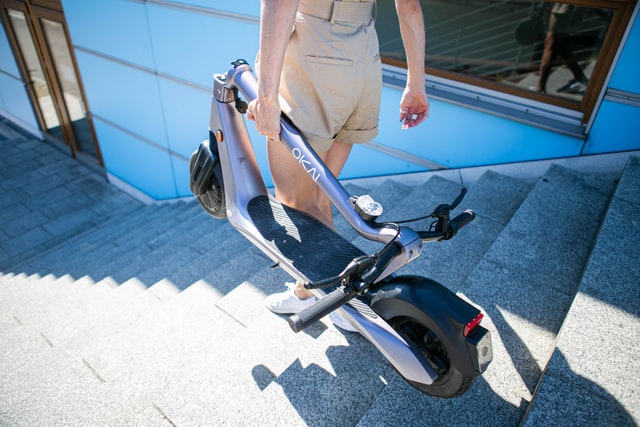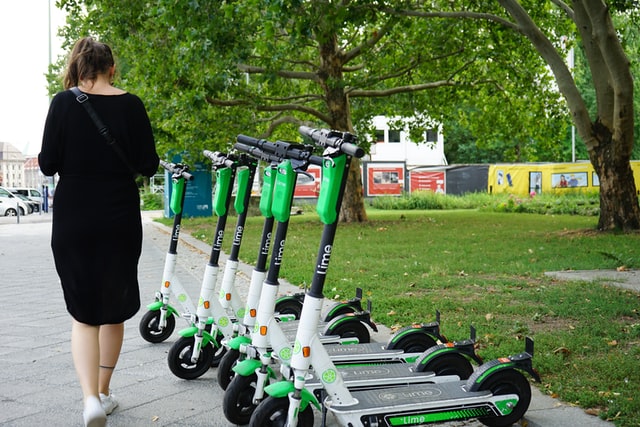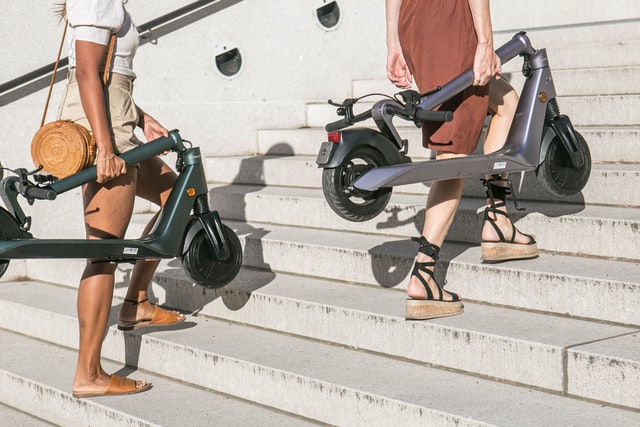In recent years, teenage kick scooters have turned into a popular choice for personal transport for adults. Because of their light and compact design, efficiency, and environmental impact, more people are using electric scooters for commuting, first and last-mile trips, and short leisure trips. Because of this growing demand, the electric scooter’s market value is expected to grow more by 12.8% by 2026.
However, despite the vehicle’s promising benefits, many people are still sceptical over electric scooters and debate over their safety and overall environmental impact. Moreover, e-scooters are still illegal in many parts of the world due to the challenges in their implementation. With this, are electric scooters safe? And, are electric scooters really worth using?
To answer these questions, let’s look at the pros and cons of electric scooters for both individuals and cities.
The pros of using electric scooters

Here are the different benefits of using electric scooters.
Offers a convenient and fast way to travel
One undeniable benefit of electric scooters is their convenient and quick way to get people to places. Because of its compact size, riders can go ride on sidewalks, parks, narrow paths, and other public areas where electric scooters are allowed. This means that e-scooter riders can bypass traffic easily by going through alternative routes.
Moreover, the e-scooter’s portability allows commuters to carry it on public transport and public areas and store it in small spaces. Overall, it’s a great first and last-mile solution since most trips are only under six miles.
As a tip, keep yourself out of harm’s way when riding by reading these tips to stay safe while using a mobility scooter.
Provides cheaper personal transport
Compared to riding an Uber and buying a car, electric scooters provide a cheaper option. For one, shared electric scooters cost almost the same as riding public transportation or even less. However, the great thing about electric scooters is that riders don’t have to wait for the bus or train and ride with other people.
When it comes to owning an electric scooter, it is relatively affordable. After all, buying an e-scooters is significantly cheaper than a car. Also, since electric scooters don’t need fuel to run, e-scooter owners don’t have to worry about fuel costs. E-scooters are also generally low maintenance, resulting in lower maintenance costs. Overall, riding e-scooters will help low-income riders get to places without breaking the bank.
Helps reduce road congestion
No matter which city you live in, traffic is one of the major pain points for city dwellers. After all, it is inconvenient and damaging to the environment. Moreover, it could cost cities wasted time and productivity. For Australia, if road congestion isn’t resolved, traffic could cost the country $39 billion by 2031.
If more people ride electric scooters, especially for short trips, it would greatly reduce the number of cars on the road. Thanks to its slim build and space-saving features, electric scooters take up less space on the road and parking.
Save on space
As mentioned, one of the benefits of electric scooters is their space-saving feature. Since cars have a wide build, it takes up space easily, especially on streets and parking spaces. Meanwhile, you can park up to 10 e-scooters in one car parking space, saving more space on the road.
However, most e-scooter riders don’t need to worry about parking because they can easily fold their electric scooters and carry them to their destination. Moreover, thanks to its compact body, e-scooters can be stored easily under desks, between gaps, or inside car trunks. Electric scooters allow riders to keep the vehicle easily and provide more public spaces for cities.
Results in a positive impact on the environment
Finally, since electric scooters don’t need fuel to run, it does not produce carbon emissions. With road transportation as one of the highest contributors to greenhouse gases, electric scooters will become an alternative to cars and buses and help reduce carbon emissions in cities. In fact, e-scooters can help reduce around 330 tons of carbon emissions every year if cities legalise them.
In addition, electric scooter manufacturers and sharing platforms are improving their models and processes continuously to reduce their overall carbon emissions. This way, electric scooters can completely become a sustainable alternative transport.
The cons of using electric scooters

This time let’s take a look at some of the disadvantages of riding electric scooters.
Only suitable for short trips
Unfortunately, some electric scooters can’t go far. Compared to cars and public transportation, electric scooters have a smaller power and battery capacity. Although some e-scooters can go over 100 km, this is just the e-scooter’s possible maximum range in a single charge. Riders will have to carry multiple batteries with them, provided that their electric scooter allows for switching or upgrading batteries.
Moreover, an e-scooter’s range will decrease over time as battery capacity also decreases. In fact, it’s normal for e-scooters to lose around 5-10 km of range towards the end of their battery life. Even with proper care, this is simply inevitable.
Unsafe if ridden carelessly
Another strong argument against riding electric scooters is their safety. After all, unlike cars or buses, you have nothing else to protect you except your safety gear. Since riders are exposed to their environment, they can easily fall and be injured from impact or get wet from the rain. In these situations, it can be quite inconvenient to ride electric scooters.
Moreover, since a driver’s license is not required to ride e-scooters, riders will not be educated on the correct and safe way to ride electric scooters. This can result in reckless driving and accidents on the road.

Still illegal in most states and territories
Finally, electric scooters are still illegal in most countries across the globe. In fact, electric scooters in Australia are only currently publicly allowed in two out of six States and Territories. This becomes an inconvenience as more riders report getting fined for riding e-scooters on roads, either from lack of knowledge from the rider or the law enforcers.
Without recognition and proper standard guidelines, riding electric scooters can become a legal inconvenience for both riders and cities. Moreover, riders can’t ask for protection or insurance in case of accidents, since electric scooters are not recognised.
Are electric scooters worth it?
These are the major pros and cons of electric scooters. Given that the pros outweigh the cons, electric scooters offer more benefits to cities and individuals.
Moreover, compared to cars and public transit, electric scooters provide more convenience for commuters and offer more solutions to cities. Even when it comes to other micromobile transports, such as electric scooters vs e-bikes, electric scooters are slightly better because it requires less effort and it’s easier to use.
However, riders should keep in mind that until e-scooter developers and lawmakers work together to legalise and improve e-scooter models and processes, the benefits above will not start to take effect. So, are electric scooters worth it? It is as long as cities provide good safety guidelines and infrastructures.

